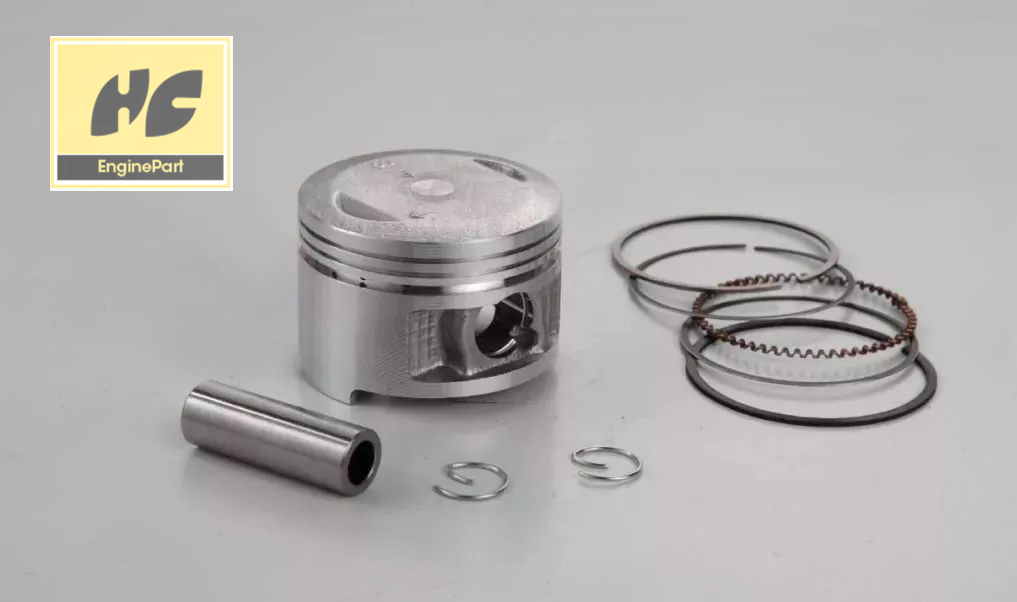What are the abnormal noises of the piston ring
2020-09-23
The abnormal noise in the engine cylinder can be summarized as the sound of piston knocking, piston pin knocking, piston top hitting the cylinder head, piston top hitting, piston ring knocking, valve knocking, and cylinder knocking.

The abnormal sound of the piston ring part mainly includes the metal percussion sound of the piston ring, the air leakage sound of the piston ring and the abnormal sound caused by excessive carbon deposit.
(1) The metal knocking sound of the piston ring. After the engine has been working for a long time, the cylinder wall is worn out, but the place where the upper part of the cylinder wall is not in contact with the piston ring almost maintains the original geometric shape and size, which creates a step on the cylinder wall. If the old cylinder head gasket is used or the new replacement gasket is too thin, the working piston ring will collide with the steps of the cylinder wall, making a dull metal crash sound. If the engine speed increases, the abnormal noise will increase accordingly. In addition, if the piston ring is broken or the gap between the piston ring and the ring groove is too large, it will also cause a loud knocking sound.
(2) The sound of air leakage from the piston ring. The elastic force of the piston ring is weakened, the opening gap is too large or the openings overlap, and the cylinder wall has grooves, etc., will cause the piston ring to leak. The diagnosis method is to stop the engine when the water temperature of the engine reaches 80℃ or higher. At this time, inject a little fresh and clean engine oil into the cylinder, and then restart the engine after shaking the crankshaft for a few times. If it occurs, it can be concluded that the piston ring is leaking.
(3) Abnormal sound of excessive carbon deposit. When there is too much carbon deposit, the abnormal noise from the cylinder is a sharp sound. Because the carbon deposit is red, the engine has symptoms of premature ignition, and it is not easy to stall. The formation of carbon deposits on the piston ring is mainly due to the lack of tight seal between the piston ring and the cylinder wall, the excessive opening gap, the reverse installation of the piston ring, the overlap of the ring ports, etc., causing the lubricating oil to channel upwards and the high temperature and high pressure gas to channel downwards. The ring part burns, causing carbon deposits and even sticking to the piston ring, which makes the piston ring lose its elasticity and sealing effect. Generally, this fault can be eliminated after replacing the piston ring with a suitable specification.